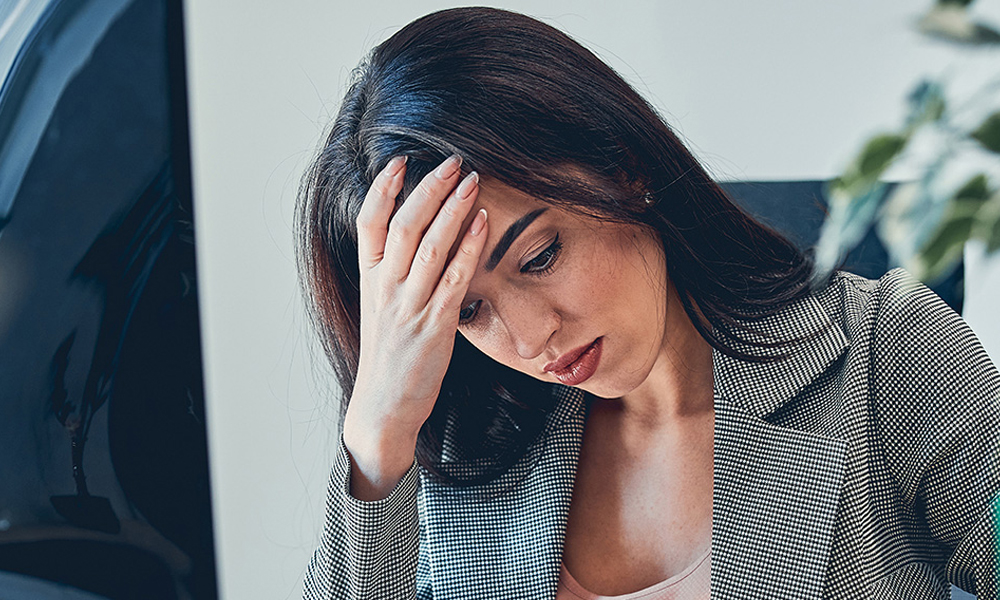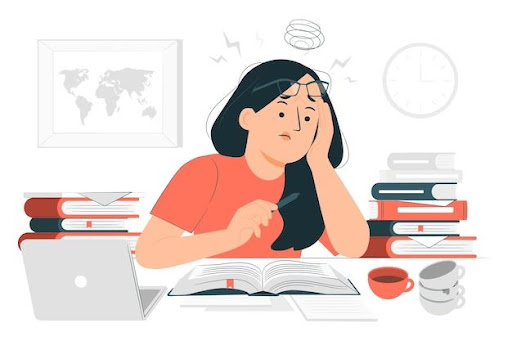
Stress is a feeling of emotional or physical strain. It can come from any event or thought that makes you feel frustrated, angry or upset. Stress is a normal human reaction that happens to everyone. The human body is designed to experience stress and react to it. When you experience changes or challenges (stressors), your body produces physical and mental responses. That’s stress.
What is stress?

Stress is a normal psychological and physical reaction to the demands of life. A small amount of stress can be good, motivating you to perform well. But many challenges daily, such as sitting in traffic, meeting deadlines and paying bills, can push you beyond your ability to cope.
Your brain comes hard-wired with an alarm system for your protection. When your brain perceives a threat, it signals your body to release a burst of hormones that increase your heart rate and raise your blood pressure. This “fight-or-flight” response fuels you to deal with the threat.
10 Ways to Manage your stress

- Get more physical activity
- Eat right
- Minimise phone use and screen time
- Talk yourself through it
- Laugh it off
- Drink tea
- Breathe
- Talk it out to a friend
- Music as meditation
- Make time for your hobbies
If you’re feeling stressed, moving your body consistently may help. Regular exercise has been shown to improve symptoms of common mental health conditions such as anxiety and depression. If you’re currently inactive, start with gentle activities such as walking or biking. Choosing an activity that you enjoy may help increase your chances of sticking to it in the long term.
Your diet affects every aspect of your health, including your mental health. Following a nutrient-dense diet and limiting ultra-processed foods may provide your body with the nutrients it needs for optimal health and decrease your risk of deficiencies in nutrients that help regulate stress.
Smartphones now have screen time functions that allow you to check your daily and weekly usage and make adjustments, such as setting usage limits for social media apps. If you set a limit, you’ll get a screen notification saying your time is up.
You can take back control of your screen time by checking how much time you are spending in front of the screen for something other than work or school and replace any unnecessary usage with non-screen activities, such as going out for a walk or a hike.
Positive self-talk and a more optimistic outlook can have other health benefits, including increased vitality, greater life satisfaction, improved immune function, reduced pain, better cardiovascular health and better physical well-being.
It’s no joke that laughing has many benefits. When you start to laugh, it doesn’t just lighten your load mentally, it induces physical changes in your body. Laughing stimulates many organs by enhancing your intake of the oxygen-rich air. Laughter can also stimulate circulation and aid muscle relaxation, both of which can help reduce some of the physical symptoms of stress.
Spill the tea! Tea not only relieves the anxiety of the task itself, but it also makes you feel more relaxed to approach a task. Tea is also a catalyst in conversations and helps build rapport. Tea also has a reputation for inducing calm which extends beyond the effects of its physical properties on our bodies & brains.
As cliché as it sounds, breathing exercises can reduce stress by increasing oxygen exchange, which reduces your blood pressure, slows the heart, and releases any tension held in the abdomen. These physical changes also benefit your mental state – concentrating on your breath can bring you into the present, in a state of mindfulness.
People who spend time with family and friends find healthier ways to cope with stress. A study conducted by Carnegie Mellon University found that people use their family and friends as a stress buffer, talking about their problems instead of seeking negative coping mechanisms like drinking alcohol, smoking or doing drugs.
Listening to music can reduce your cortisol levels and help you fall asleep. Usually, meditation aims to focus, centre, calm, or direct your attention. It can also help relax our bodies. So it can pair well with music for some people.
Often, music used for meditation has a slow tempo, which can reduce heart rate, and also lower anxiety and stress levels. Guided meditation involves music with a narrator or speaker that directs your energy flow and focus, or offers positive affirmations.
Your hobbies keep the child in you alive. A growing body of research has found that spending time on hobbies not only makes us happier and more relaxed but also improves our workplace productivity, focus, and creativity.


